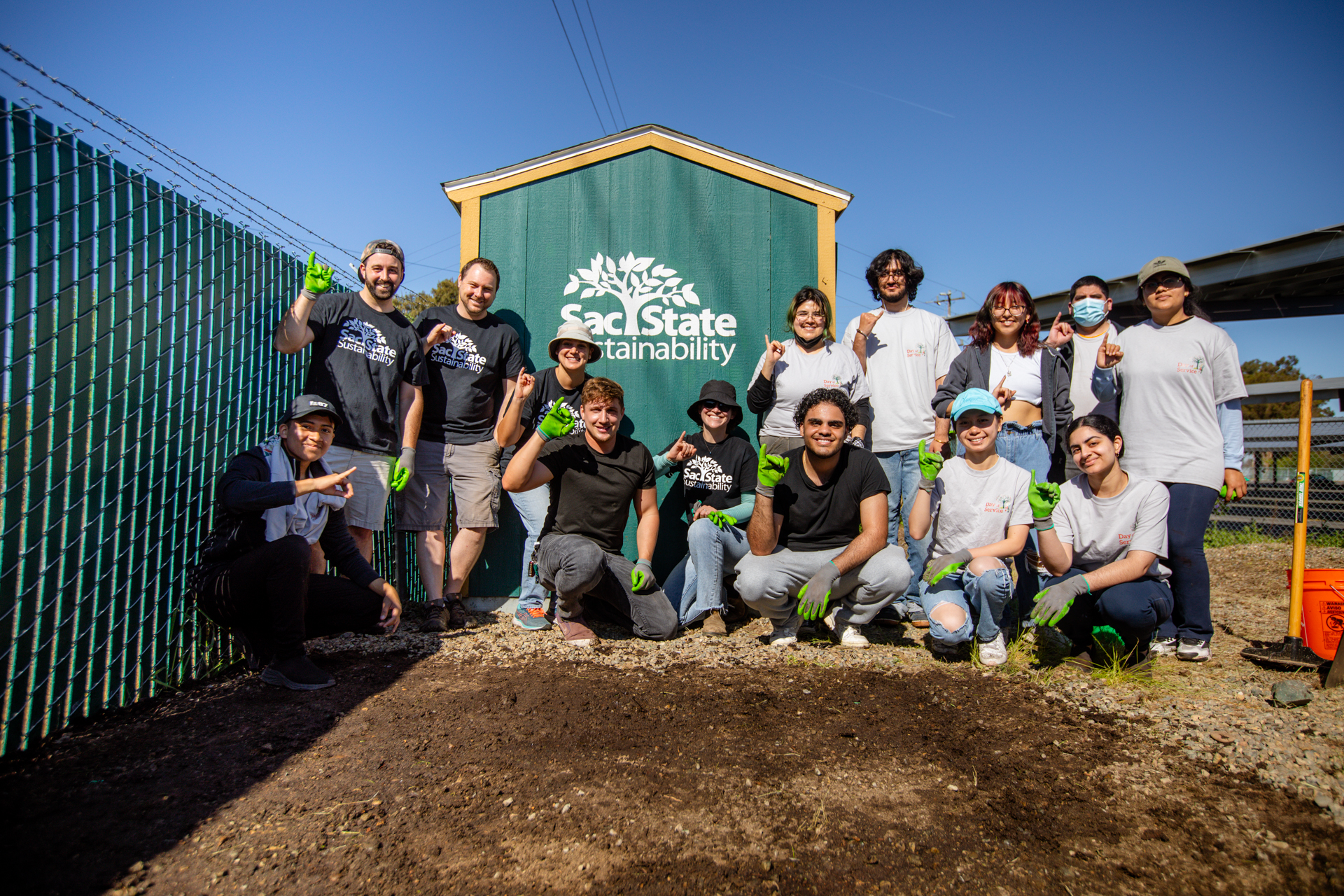Support Page Content
Bioconversion & Agricultural Collaborative Yard
History
The Bioconversion and Agricultural Collaborative Yard (BAC Yard) exists to reduce waste and greenhouse gas emissions at Sacramento State through composting and sustainable agriculture methods. The BAC Yard is a partnership between students, faculty and staff using the campus as a living laboratory.
The BAC Yard began in 2016 as a partnership with Environmental Studies students and faculty to create onsite composting operations and divert thousands of pounds of food and landscape waste from the landfill. After a few short years, the facility has grown into a large-scale production facility composting 100 cubic yards of organic material each year. Finished compost is used in the campus garden and throughout campus planter beds. The campus also produces enough compost to donate some to the local community and k-12 community gardens.
⠀

Composting
At the BAC Yard we compost a significant portion of the campus greens and food waste. Composting at the BAC Yard happens via Vermicomposting, Hot Composting or Windrow Composting.
- Vermicomposting is an in-vessel composting system which uses worms to break down food waste. The worms break down the waste and supply us with nutrient rich worm castings.
- Hot Composting mixes food waste from on-campus eateries and coffeehouses with leaves. The mixture is placed in small piles and turned regularly.
- Windrow Composting is the process of collecting campus leaves and other green waste in a long narrow row. The row is soaked and covered with a large tarp, then turned regularly with a tractor.
Anaerobic Biodigester: "Waste to Watts"
Sacramento State’s anaerobic biodigester is a system that converts campus food waste into clean energy and organic fertilizer using microbial anaerobic digestion. In an oxygen-free environment, specialized bacteria break down organic waste, producing biogas—a renewable energy source—and digestate, a nutrient-rich organic fertilizer that supports soil health and campus landscaping.
The Waste to Watts program generates electricity from biogas, which is then stored in a battery to power campus events. This innovative approach reduces the need for gasoline-powered generators, significantly decreasing greenhouse gas emissions. Partnering with Aramark and University Events, the program collects food waste from catering services, transforming it into sustainable energy while advancing Sacramento State’s zero waste and carbon neutrality goals. Through this closed-loop system, the university is pioneering new ways to reduce waste and power events with clean, renewable energy.

 ⠀
⠀